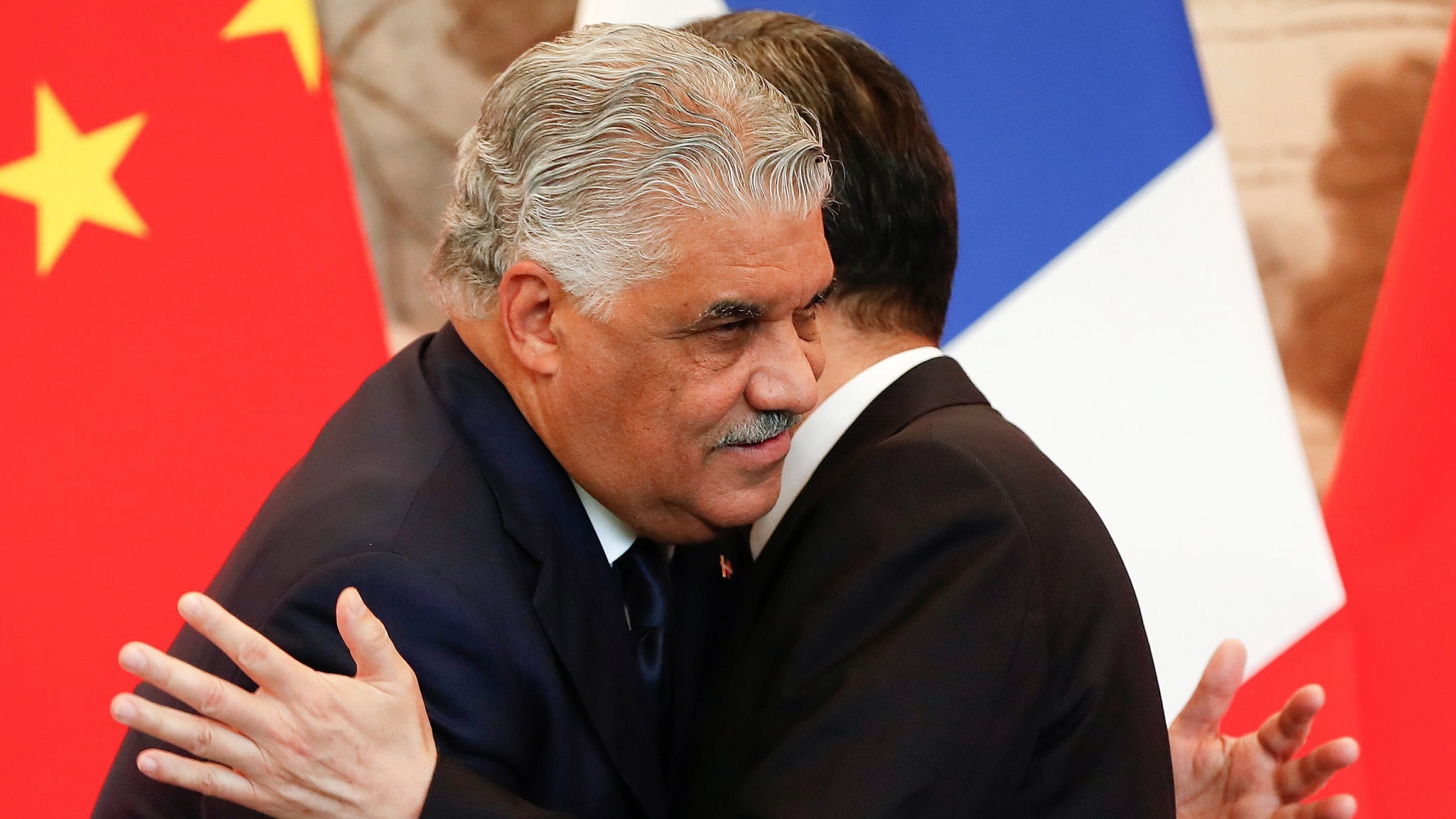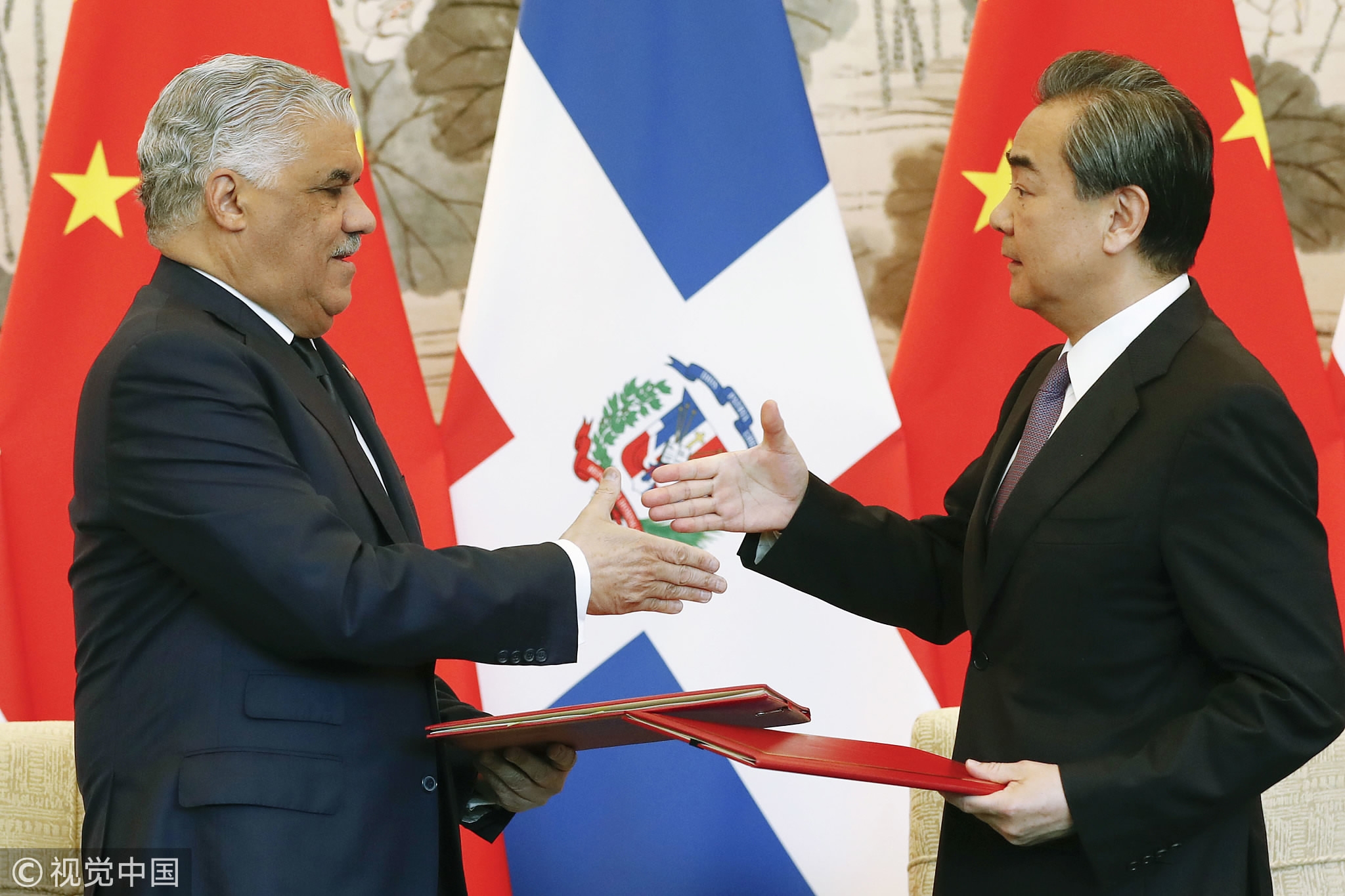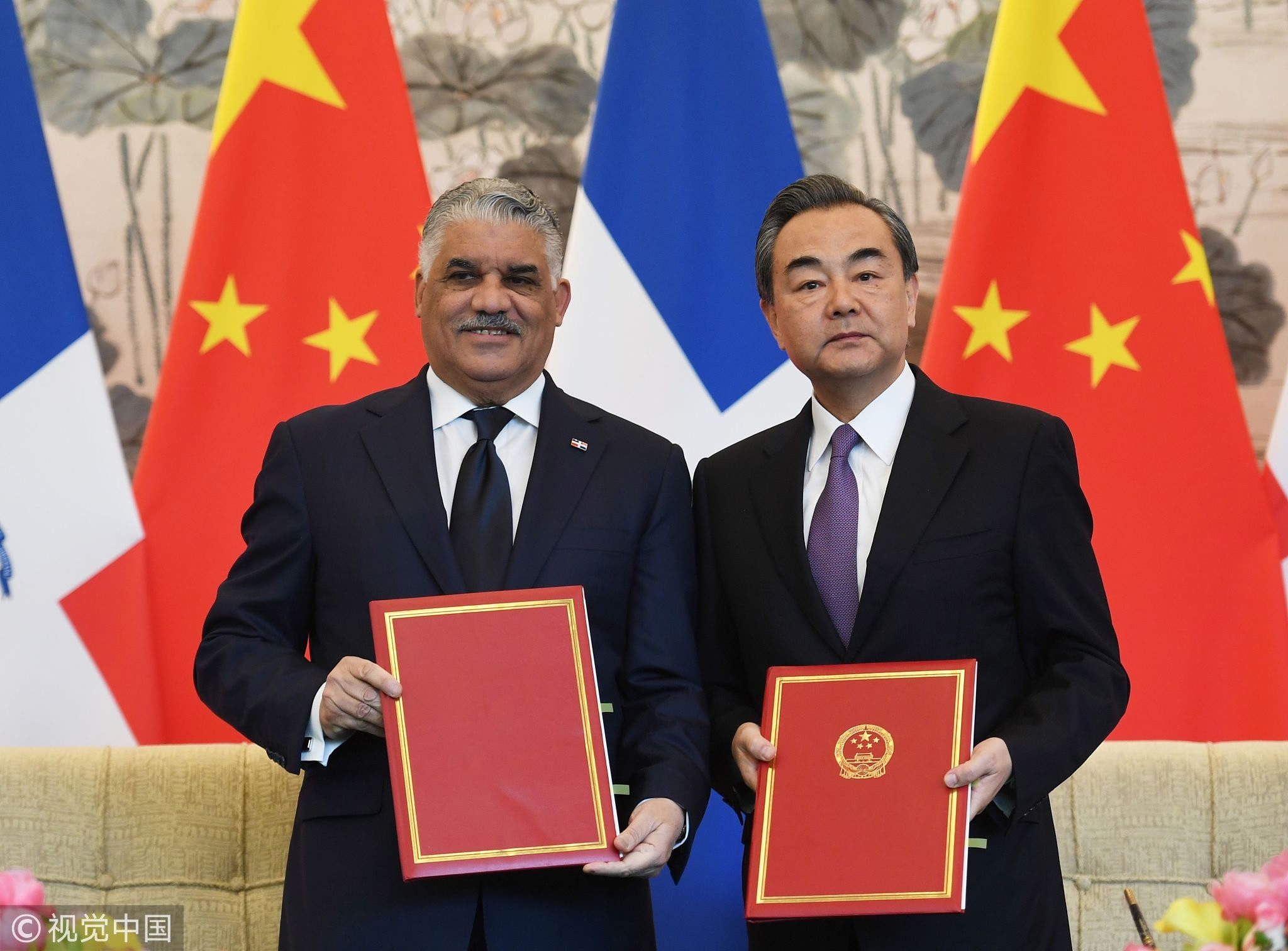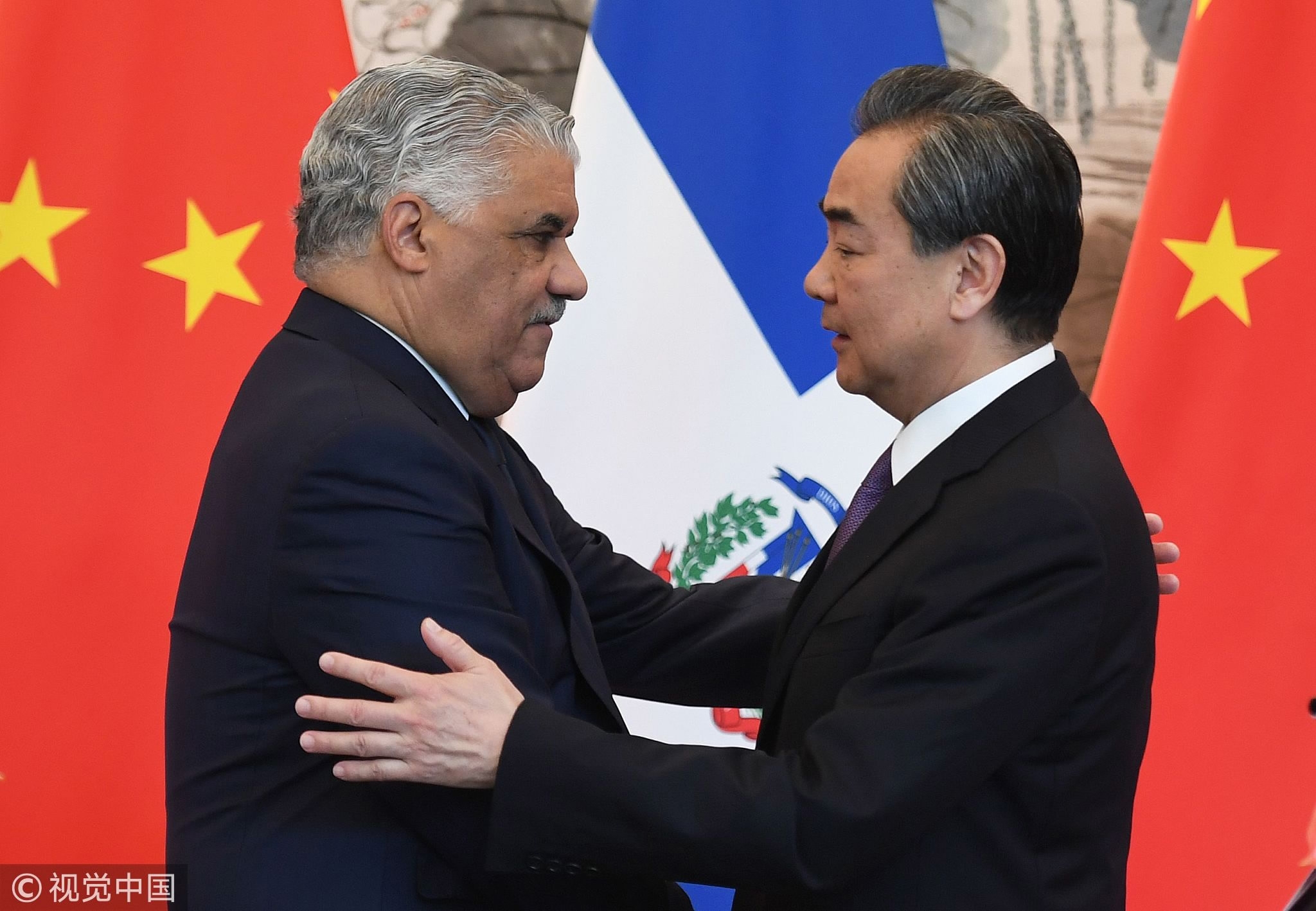
Caribbean island country, the Dominican Republic, is on board with China now. It has just ditched Taiwan to become the latest to establish diplomatic relations with China. Last year it was Panama. This year so far it is Dominican Republic. Taiwan’s last bastion of international presence, mostly in Central America and the Caribbean, is starting to collapse. Only 19 countries still haven’t severed their ties with Taiwan. And these countries are so obscure that I bet most folks won’t be able to find them on a map.
I suspect behind the scenes, most of these 19 countries’ ministers of foreign affairs are secretly holding talks with China’s diplomats. I further suspect that the talk is as much about not severing ties with Taiwan now as they are eager to. I suppose Beijing still intends to leave some face for the ruling Democratic Progress Party in Taiwan while also showing some goodwill towards the Taiwan people. More importantly Beijing still needs a few countries outside its diplomatic community as a card to discipline Taipei. This is expected to become the rule in the future: Every time Taipei stirs up things in Washington DC, it will have to pay a political price by losing a notch in its passport usefulness.

Dominican Republic Foreign Minister Miguel Vargas (L) and Chinese State Councilor and Foreign Minister Wang Yi shake hands at a ceremony in Beijing on May 1, 2018, to announce the establishment of diplomatic relations. (Photos: VCG)
Such is just the cruel realpolitik situation facing Taiwan. For China, the gain of the Dominican Republic under its orbit is long overdue. And for me, it is even personal! The Dominican Republic holds great promise in expanding trade with China, but not for the reason those think tank pundits in media would like to tell you. The biggest secret I am going to harp on in this piece is something I suspect even few Central American diplomats at the Ministry of Foreign Affairs have a clue.
I am puffing my way to revealing the truth!

Dominican Republic Foreign Minister Miguel Vargas (L) poses with China's Foreign Minister Wang Yi after signing documents to formally establish relations, in Beijing on May 1, 2018.
For those well-traveled folks, especially to the big European and American airports, some of you probably have occasionally picked up a box of cigars under such venerable names as Cohiba, thinking they are the real thing from Cuba. The Cuban cigar is of course the jewel on the crown for us the hopeless puffing crowd. Legend has it that John F. Kennedy sent his secretary out to snatch 1200 sticks of H. Upmann before imposing the broadest trade embargo against Cuba. Today the Cuban cigar business is all controlled by the state monopoly Habanos S.A., which has priced its products out of the range of most of us salaried folks.
In the exodus of Cubans in the cigar business in the 1960s, some have successfully re-started and thrived in the Dominican Republic due to its similar weather and soil conditions to Cuba. Interestingly, Habanos S.A. has tolerated these businesses using the brand names they brought with them from Cuba. Hence we have those legendary dueling brands produced respectively from Cuba and the Dominican Republic, such as Montecristo, H. Upmann, Trinidad, Partagas, and Romeo y Julietain in addition to Cohiba we have already mentioned. These cigars from the Dominican Republic are everything as good as what Habanos S.A. purveys.

Dominican Republic Foreign Minister Miguel Vargas (L) embraces China's Foreign Minister Wang Yi after a signing ceremony where they formally established relations, in Beijing on May 1, 2018.
For those on a tighter budget, I can advise better choices. Matasa is a great company based in Santiago with quality cigars routinely breaking into the Cigar Aficionado’s top-twenty list. Its boss Manolo Quesada named its best product after himself. His company also rolls another less-known Cuban-dueling-brand cigar called Fonseca, which offers a much milder taste. That might do well for the Chinese market.
With the Dominican Republic on board now, I hope China Tobacco will give ordinary smokers in China a second choice other than the expensive lot from Habanos S.A. The Cibao Valley in the Dominican Republic produces some of the world’s best tobacco for cigar wrappers, binders and fillers. A cigar is much healthier than a cigarette, considering Bill Clinton’s famous statement of Marijuana that he didn’t inhale while smoking. Besides they say it imparts a unique smell and style that attracts women. I haven’t had that luck yet, so I need to try some more from Santiago - if China Tobacco allows it.
(John Gong is a research fellow at Charhar Institute and professor at the University of International Business and Economics. The article reflects the author's opinion, and not necessarily the views of CGTN.)
Top image: CGTN


